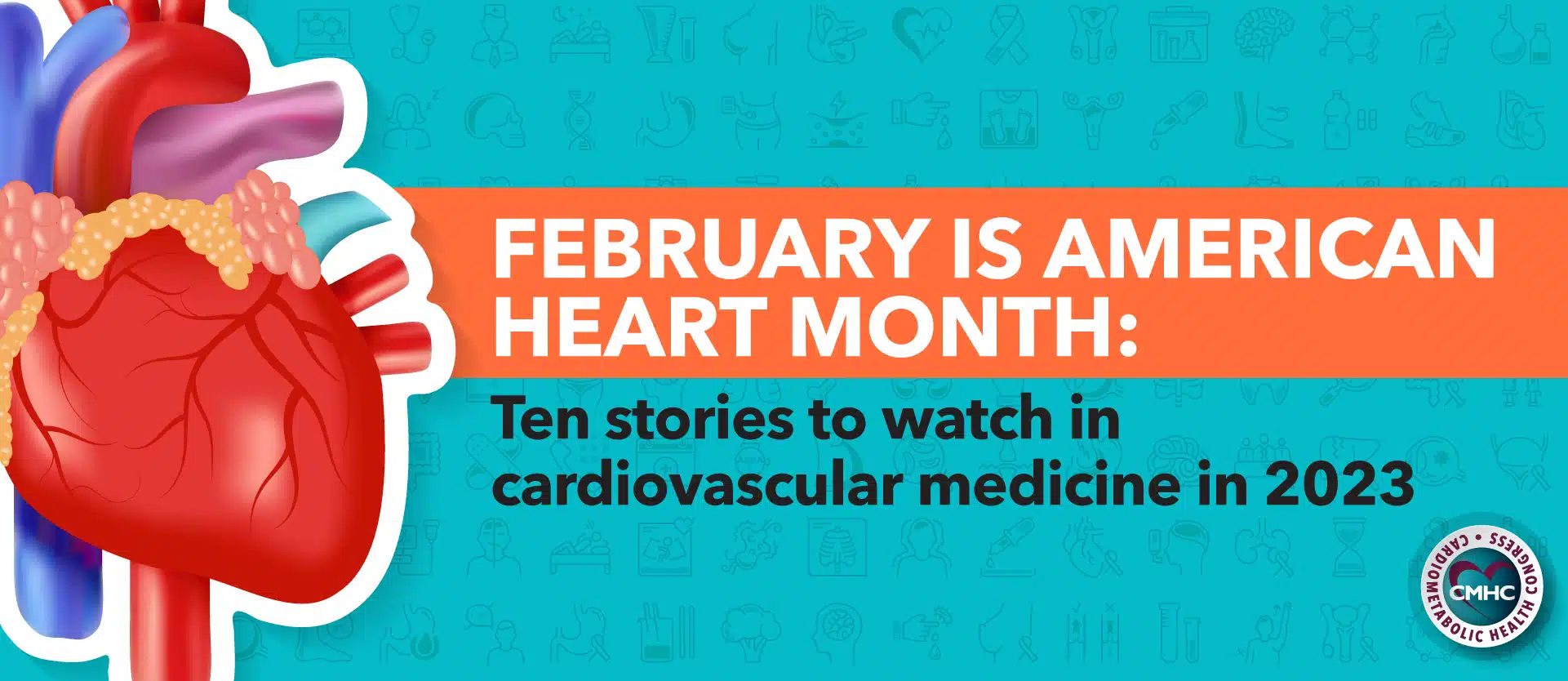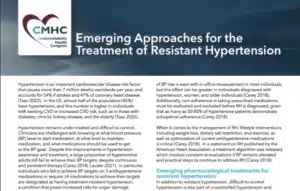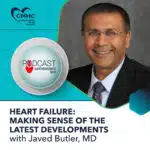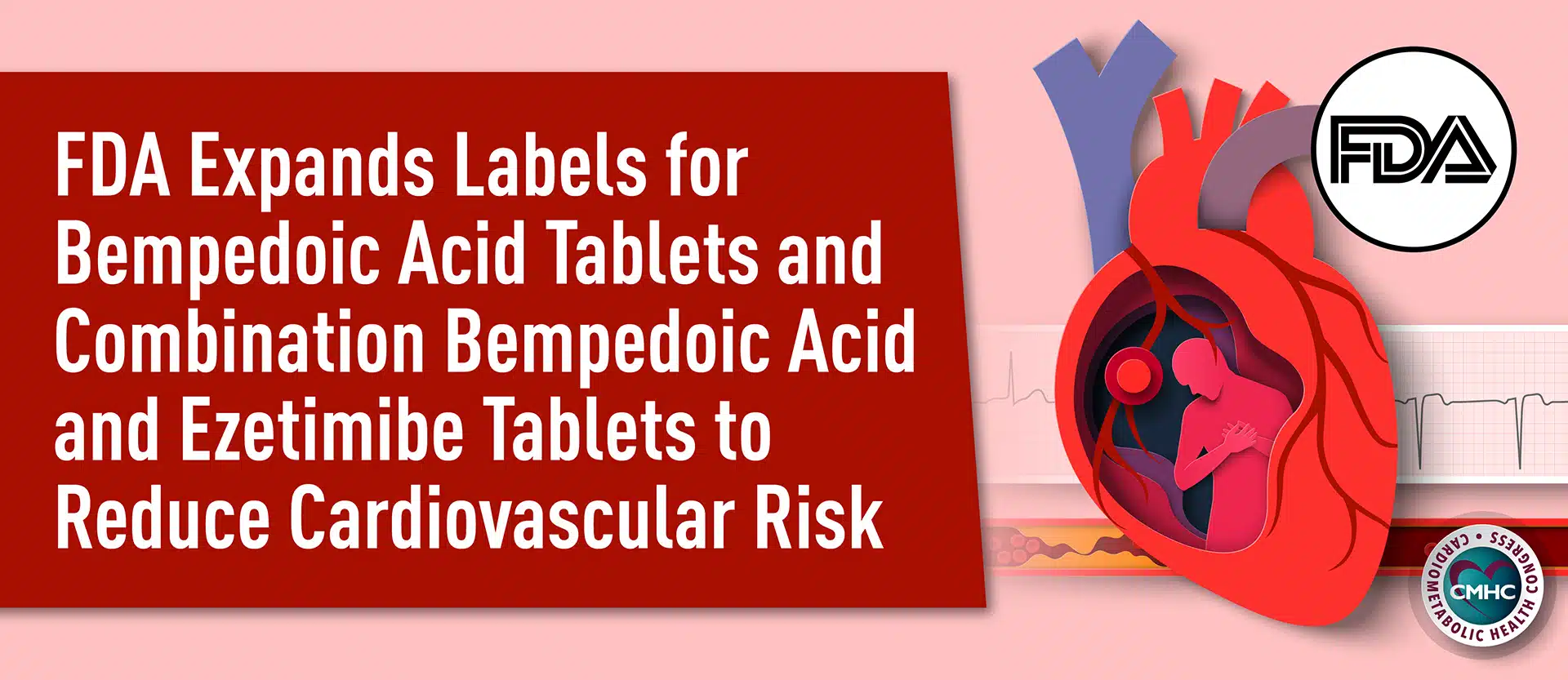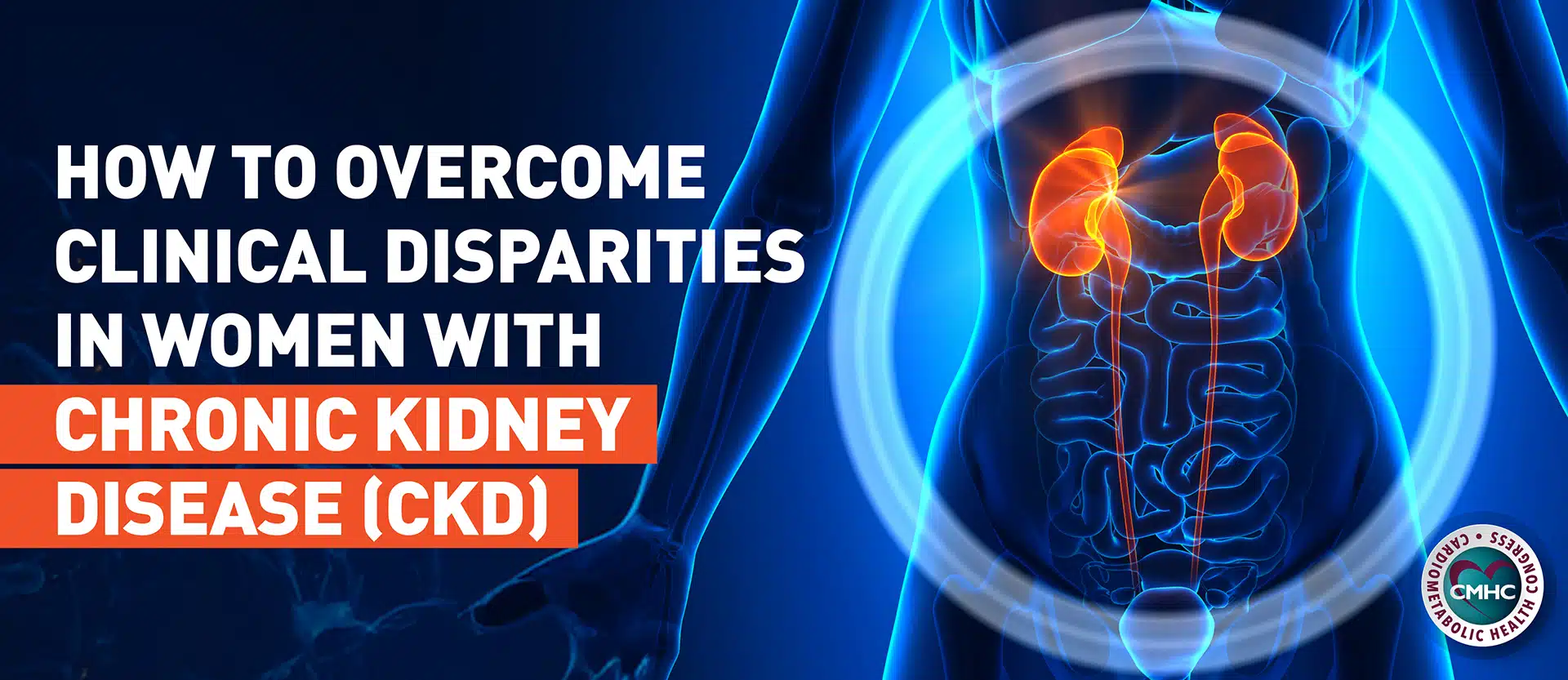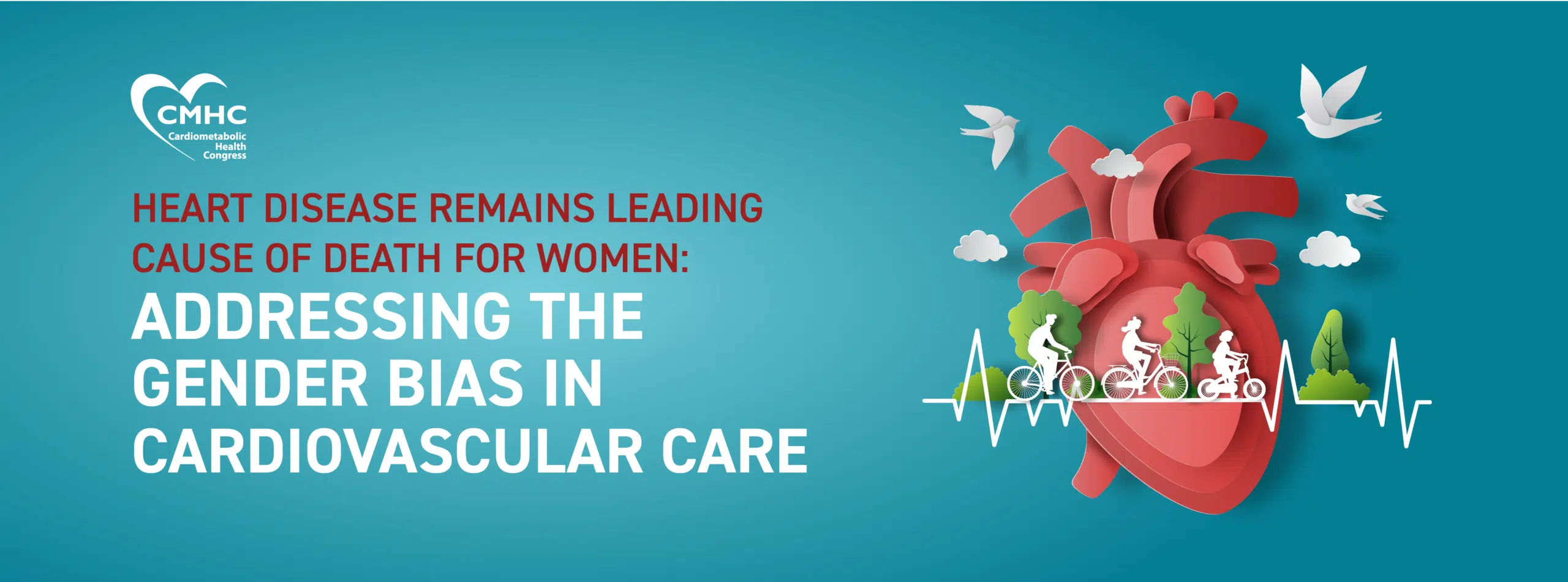This year marks the 60th anniversary of the proclamation by the U.S. Congress in 1963 that each February would be recognized as American Heart Month. This February, the White House recommits support to the more than 120 million people in the U.S. living with cardiovascular disease. Cardiometabolic Health Congress (CMHC) joins in this fight to increase cardiovascular disease awareness, extending the potential for a long healthy life for all patients. In observance of American Heart Month, here are 10 stories in cardiovascular medicine to watch in 2023.
10. Rheumatoid arthritis drugs may help lower cardiovascular risk.
Statistically significant reductions in arterial inflammation were observed in patients treated with tumor necrosis factor (TNF) inhibitors or triple therapy for rheumatoid arthritis (RA). In a study conducted by researchers from Brigham and Women’s Hospital, patients with active RA symptoms were randomly assigned to TNF inhibitor or addition of sulfasalazine and hydroxychloroquine (triple therapy) for 24 weeks. Outcomes, measured by positron emission tomography (PET) and computed tomography (CT) imaging, showed improvement in arterial inflammation – which is an index of cardiovascular risk – in the carotid arteries and aorta. The authors of the study concluded by noting that “patients with RA have increased arterial inflammation that is responsive to effective treatments. However, it is unclear that different treatments impact arterial inflammation differentially.”
9. Cardiovascular disease and dementia are linked.
People with early cardiovascular disease may be more likely to have memory and thinking problems and worse brain health in middle age, according to new research published in the American Academy of Neurology’s online journal Neurology. “Cardiovascular diseases such as heart disease and stroke have been associated with an increased risk for cognitive impairment and dementia in older adults, but less is known about how having these diseases before age 60 impacts cognition and brain health over the course of life,” said study author Xiaqing Jiang, PhD, of the University of California, San Francisco. “Our study found that cardiovascular events earlier in life are associated with worse cognition, accelerated cognitive decline and poor brain health in middle age.” A notable limitation of the study, supported by the National Institutes of Health and National Institute on Aging, was that the cognitive tests used to measure brain function were not administered at baseline.
Read more from CMHC in Evidence Links Cardiometabolic and Neurodegenerative Disorders.
8. Further evidence connects oral health to heart disease.
A study conducted by Hiroshima University School of Medicine revealed gum disease is connected to even more severe problems than bad breath and tooth loss. A research team led by Shunsuke Miyauchi, MD, PhD, found a significant correlation between periodontitis and atrial fibrosis (AF) in a sample of 76 patients with cardiac disease. The results of this small study provided more evidence that individuals with poorer oral health and conditions such as gum disease are more likely to have heart disease. This indicates that periodontitis is another modifiable risk factor for AF, which is significant because oral health can be improved through inexpensive hygiene measures and patient education.
Read more about cardiometabolic disease and periodontitis in Undetected Dysglycemia Linked to Two Common Diseases.
7. Developments in resistant hypertension.

6. Major heart organizations disagree about revascularization guidelines.
Representatives from The American Association for Thoracic Surgery (AATS) and The Society of Thoracic Surgeons (STS) released a statement in The Annals of Thoracic Surgery detailing their dissent on new coronary artery revascularization guidelines. Citing their interpretation of the best treatment strategies available, they notably object to the guidelines grouping percutaneous coronary intervention (PCI) and coronary artery bypass graft (CABG) as equivalent revascularization strategies in decreasing ischaemic events. In their publication, the authors suggests that multiple recent randomised studies have demonstrated the superiority of CABG over PCI in decreasing repeat reintervention and post-procedural myocardial infarction.
5. Results expected from CLEAR outcomes trial.
Three years after its FDA approval to lower LDL-C, new data from the CLEAR Outcomes trial support the expanded use of bempedoic acid (an ATP citrate lyase inhibitor and oral non-statin) to reduce the risk of four major adverse cardiovascular events (MACE-4): acute myocardial infarction; stroke; hospitalization for unstable angina or revascularization procedures; and cardiovascular mortality. The much-anticipated results of the CLEAR trial will be presented at the 2023 American College of Cardiology’s Annual Scientific Session. The topline results already showed that bempedoic acid met the primary endpoints, but the full results are expected to provide additional evidence about the potential role of this therapy in preventing MACE-4 in patients with elevated LDL-C. If granted an expanded label, bempedoic acid will join two PCSK9 inhibitors (evolocumab and alirocumab) in the lineup of non-statin therapies to reduce the risk of adverse cardiovascular events. Also expected soon are results from ongoing ORION outcomes studies on the effects of PCKS9 inhibitor inclisiran on athersclerosclerotic cardiovascular disease. Like bempoic acid, inclisiran is currently approved for lowering LDL-C but it’s yet to be established if it reduces MACE-4 like other therapies targeting PCSK9.
4. New interventional cardiology training requirements released.
The American College of Cardiology convened its Competency Management Committee to oversee the development and periodic revision of training and competency statements for practitioners of cardiovascular medicine. In Feb. 2023, the committee released an Advanced Training Statement to identify the core competencies required of interventional cardiologists, including those related to coronary, peripheral vascular, and structural heart interventions. The pathways for cardiovascular training outlined in the document include:
-
- A three-year general cardiovascular disease fellowship
- A one-year accredited interventional cardiology fellowship
- An option for additional post-fellowship training based on the trainee’s career goals
Read more about cardiac catheterization, transcatheter aortic valve replacement, and mitral valve repairs in Interventional Cardiology: The Latest Specialty Insights.
3. Another SGLT2 inhibitor approval expected for heart failure.
Building on the expanded designation of sodium-glucose cotransporter 2 (SGLT2) inhibitor empagliflozin for the treatment of heart failure in 2021, another agent in the same class is expected to get an expansion from the U.S. Food and Drug Administration (FDA) this year. In positive results from the DELIVER trial, SGLT2 inhibitor dapagliflozin showed an even stronger response in patients with mildly reduced or preserved left ventricular ejection fraction (LVEF) compared to empagliflozin. A pool of 6263 adult patients with (LVEF) greater than 40% and New York Heart Association (NYHA) class II-IV heart failure were randomised 1:1 to receive either 10 mg dapagliflozin or placebo. The primary endpoints of the DELIVER trial – cardiovascular death or worsening heart failure defined as heart failure hospitalization or urgent heart failure visit – were assessed in dual-primary analyses of 1117 primary events. These results support the evolution of SGLT2 inhibitors, initially developed as glucose-lowering agents, in their pleiotropic ability to also reduce mortality related to heart disease and kidney failure.
“Heart failure is a chronic, debilitating cardio-renal-metabolic condition affecting over 60 million people worldwide. As the prevalence of heart failure continues to rise, the need for new treatment options is critical.” – Javed Butler, MD, MPH, MBA
2. Racial and gender disparities in cardiovascular outcomes persist.
Black adults of any gender are twice as likely to die from preventable heart disease, and Black women had the highest rates of cardiovascular disease of any group, published results of the Multi-Ethnic Study of Atherosclerosis (MESA) reported. The MESA investigators recruited 6814 adults between 45 and 84 years old, with no evidence of clinical cardiovascular disease (CVD) at baseline, and followed them for a median of 15.8 years. In that period, 22.8% of participants (n=1552) died, 5.3% (n=364) of which were categorized as CVD-related deaths. The study’s lead author Wendy S. Post, MD, MS, of the Department of Medicine at Johns Hopkins University, wrote that MESA’s results “highlight persistent racial and ethnic differences in overall and CVD mortality, largely attributable to social determinants of health, and support the need to identify and act on systemic factors that shape differences in health across racial and ethnic groups.”
1. Cardiovascular implications of the COVID-19 pandemic continue.
The reason for rising rates of cardiovascular-related deaths during the pandemic years can be grouped into three primary hypotheses: the virus is associated with increased clotting, inflammation, and other cardiovascular risk factors; people who experienced heart disease and stroke symptoms mid-pandemic were reluctant to seek medical care due to risk of COVID-19 exposure in the clinic setting; and safety considerations for COVID-19 led to broad disruptions in medical care for routine or preventative care. Regardless of cause, The American Heart Association and National Institutes of Health’s joint 2023 statement on cardiovascular statistics indicate the pandemic’s continued effects on cardiovascular death rates highlight structural and societal issues that drive health disparities. Watch the co-chairs of the joint statement writing group summarize the 2023 statistics updates and implications:


